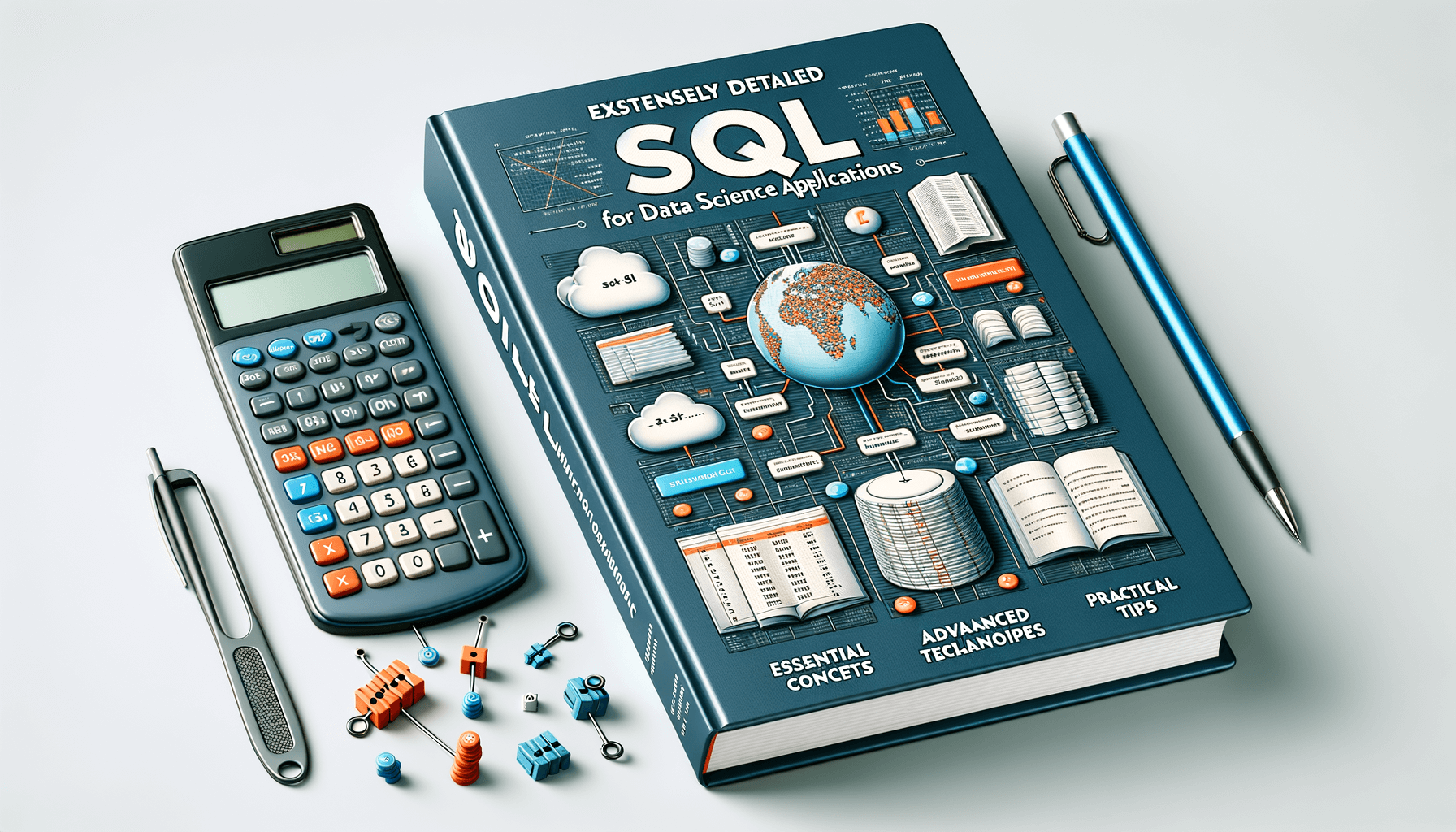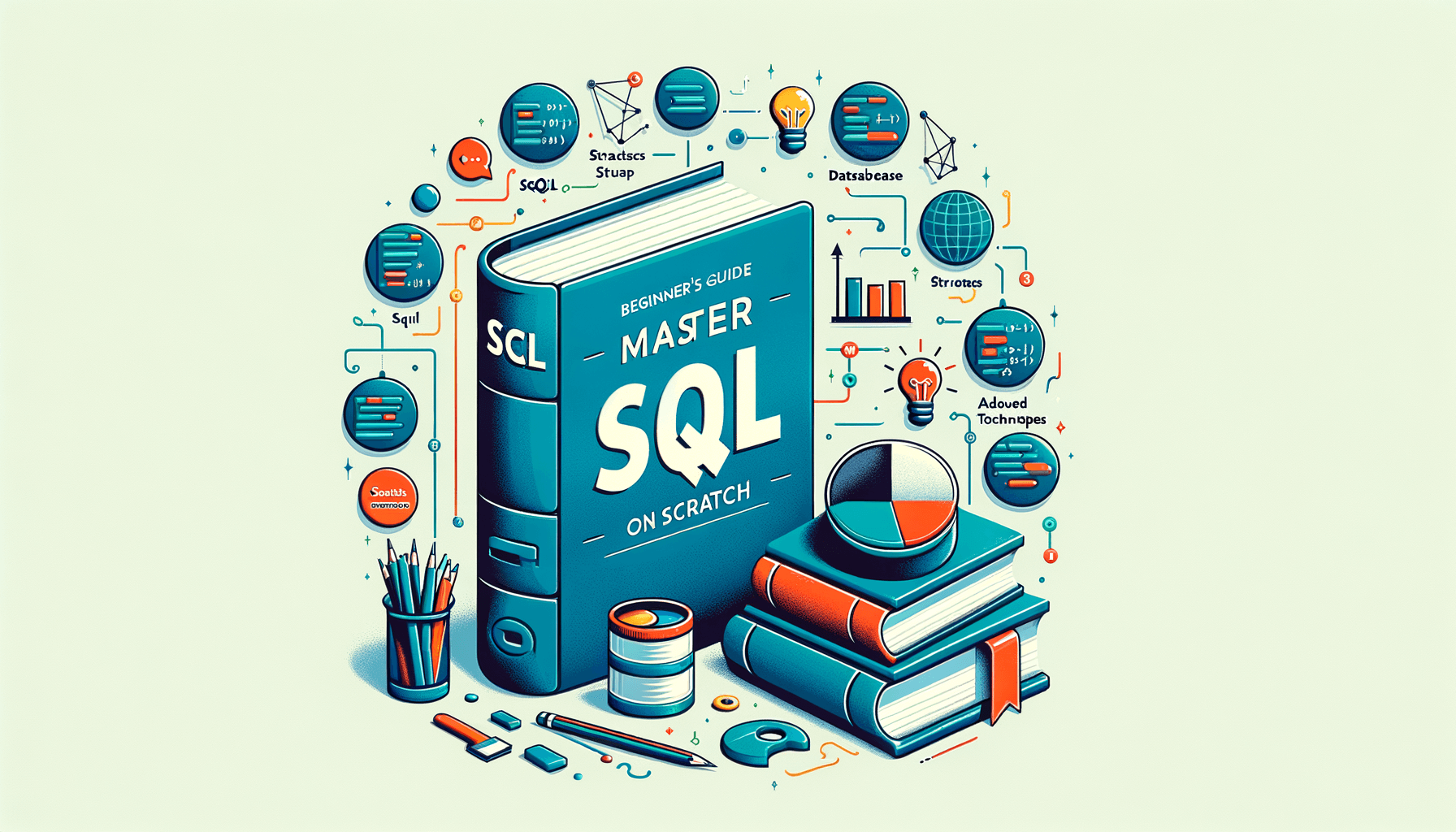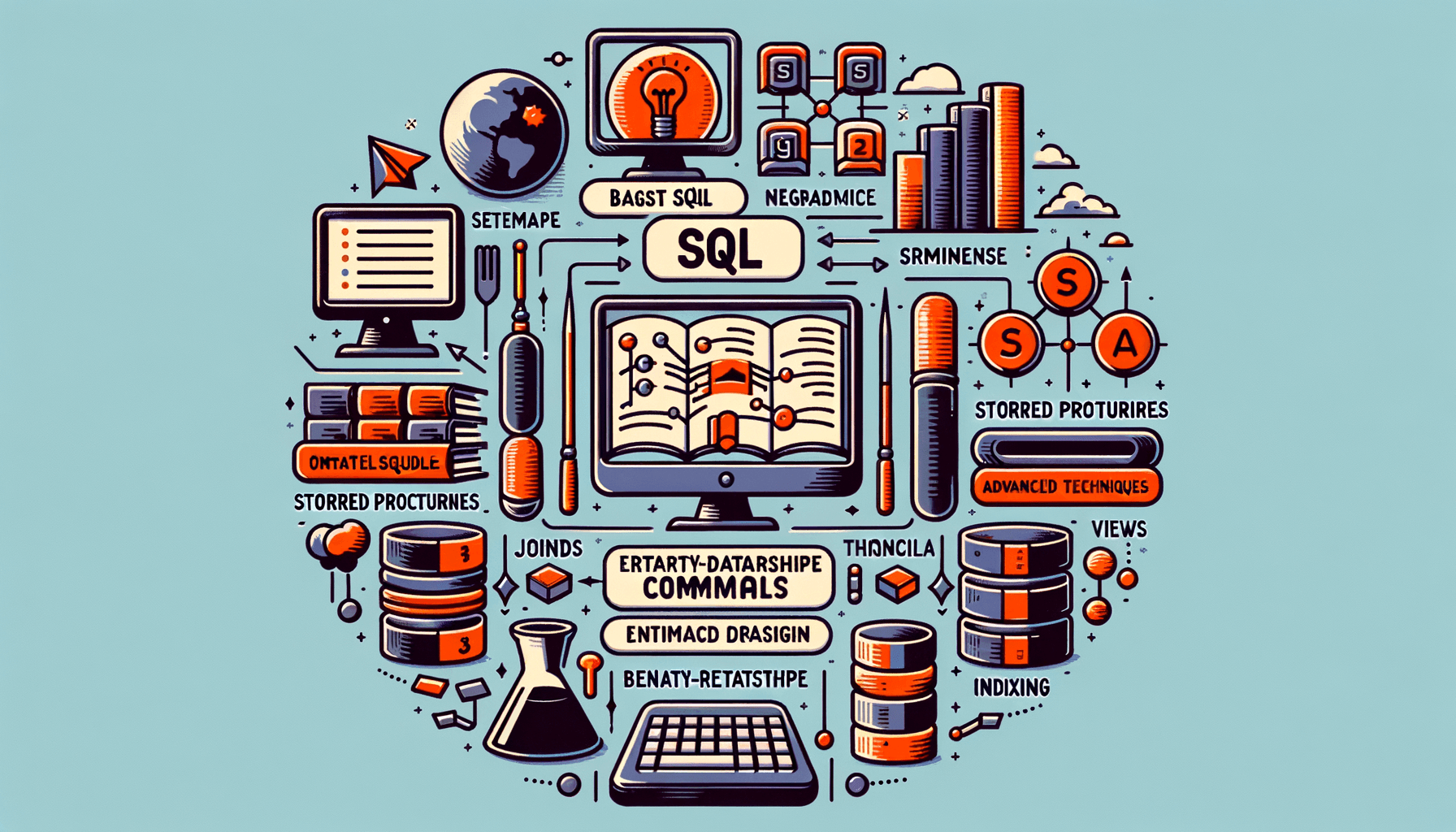A big variety of articles and resources

Mastering SQL for Data Science: A Comprehensive Guide
 Sia Author and Instructor
Learn SQL
Sia Author and Instructor
Learn SQL
7 minute read
The Importance of SQL in Data Science
Why SQL is Essential for Data Scientists
In today's data-driven world, SQL stands out as an indispensable tool for data scientists. It enables a wide range of operations, from data extraction to manipulation and analysis, with unmatched ease and efficiency. For example, querying a database to find customers who made purchases over $500 in the last month can be done effortlessly with SQL. Mastering SQL queries and techniques will significantly enhance your data analysis capabilities and efficiency.
SQL vs. Other Data Analysis Tools
SQL databases support complex queries and transactions, making them crucial for detailed data analysis and reporting. Their structured nature allows for clear schema definitions, which are vital for data integrity and reliability in predictive analytics. Unlike other data analysis tools, SQL provides a robust framework for handling large datasets with precision.
Real-World Applications of SQL in Data Science
SQL is widely used in various real-world applications, from business intelligence to advanced analytics. Data scientists often rely on SQL for tasks such as data preparation, quality improvement, and project readiness. Whether it's grouping, filtering, or performing advanced analytics, SQL proves to be a versatile tool in the data scientist's toolkit.
SQL is not just a query language; it's a powerful tool that bridges the gap between data storage and insightful analysis. Its applications span across industries, making it a must-have skill for any data scientist.
Core SQL Concepts Every Data Scientist Should Know
In the data-driven world of today, SQL (Structured Query Language) remains a cornerstone skill for data scientists. This guide delves into the pivotal role of SQL in extracting, manipulating, and analyzing data, setting a solid foundation for aspiring data scientists. From understanding basic queries to advanced data manipulation techniques, we cover the essentials and beyond to empower you with the skills needed to excel in data science.
Advanced SQL Techniques for Data Science
Optimizing SQL Queries for Performance
Optimizing SQL queries is crucial for efficient data analysis. Indexes can significantly speed up data retrieval but should be used judiciously to avoid unnecessary slowdowns. Partitioning large datasets can also enhance performance by allowing parallel processing.
Using Window Functions for Complex Calculations
Window functions are powerful tools for performing complex calculations across sets of table rows. They allow data scientists to execute operations like running totals, moving averages, and ranking without altering the original dataset structure.
Implementing Stored Procedures and Functions
Stored procedures and functions enable the encapsulation of complex logic within the database, promoting code reuse and improving performance. They are essential for automating repetitive tasks and ensuring consistency across data operations.
Mastering these advanced SQL techniques can transform raw data into actionable insights, driving more informed decision-making in data science projects.
Practical Tips for Mastering SQL
Consistent Practice and Real-World Projects
Consistent practice is the cornerstone of mastering SQL. Engage in exercises that challenge your understanding of SQL queries, data manipulation, and table creation. Working on real-world projects can provide practical experience and deepen your knowledge.
Leveraging Online Resources and Communities
Utilize online resources such as tutorials, forums, and documentation to enhance your SQL skills. Joining communities of SQL enthusiasts can offer support, answer questions, and provide valuable insights.
Common Mistakes to Avoid
Be aware of common mistakes such as neglecting to use indexes, writing inefficient queries, and not understanding the data types. Avoiding these pitfalls can significantly improve your SQL proficiency.
Remember, the key to mastering SQL is consistent practice and continuous learning. Engaging with real-world projects and leveraging online resources can accelerate your journey to becoming proficient in SQL.
Leveraging SQL for Data-Driven Decision Making
Transforming Data into Insights
SQL is a powerful tool for transforming raw data into actionable insights. By crafting precise queries, data scientists can extract meaningful patterns and trends from large datasets. This process is essential for making informed decisions that drive business success. SQL's ability to handle complex data structures makes it indispensable in the data analysis toolkit.
Building Dashboards and Reports with SQL
Integrating SQL with data visualization tools like Tableau or PowerBI allows for the creation of interactive and insightful visual reports. These tools can connect directly to SQL databases, enabling real-time data analysis and reporting. This integration provides a holistic view of data, making it easier for stakeholders to make informed decisions.
Case Studies of Successful Data Projects
Numerous case studies highlight the effectiveness of SQL in data-driven decision-making. For instance, in the e-commerce sector, SQL is used to analyze customer behavior, manage inventory, and track sales trends. By leveraging SQL to sift through vast amounts of transactional data, businesses can tailor their marketing strategies, optimize inventory levels, and enhance customer satisfaction. These examples demonstrate SQL’s power in extracting, analyzing, and interpreting data to drive strategic decisions across various industries.
SQL Tools and Resources for Data Scientists
In the ever-evolving field of data science, SQL stands as a cornerstone skill for data manipulation and analysis. Mastering SQL can significantly enhance your data science capabilities, allowing you to extract, analyze, and interpret large datasets with efficiency and precision. This section offers actionable advice and resources to deepen your SQL skills, tailored for a career in data science.
As a data scientist, having the right SQL tools and resources is crucial for your success. Our website offers a comprehensive range of courses designed to enhance your SQL skills and advance your career. Don't miss out on the opportunity to learn from our team of experts and take your technical knowledge to the next level. Visit our website today and start your journey towards becoming a SQL specialist!
Conclusion
Mastering SQL is undeniably a cornerstone skill for any aspiring data scientist. This comprehensive guide has walked you through the essential concepts, practical tips, and advanced techniques necessary to harness the full potential of SQL in data science. By consistently practicing and continuously learning, you can build a robust foundation that will not only enhance your data manipulation and analysis capabilities but also significantly boost your career prospects. Remember, the journey to mastering SQL is ongoing, and with the right resources and dedication, you can achieve proficiency and make impactful contributions in the field of data science.
Frequently Asked Questions
What is SQL and why is it important for data science?
SQL, or Structured Query Language, is essential for data science as it allows for efficient data manipulation, extraction, and analysis from large datasets, which is crucial for making data-driven decisions.
How does SQL compare to other data analysis tools?
While tools like Python and R are also popular in data science, SQL is uniquely suited for querying and managing relational databases, making it indispensable for handling structured data.
What are some real-world applications of SQL in data science?
SQL is used in various applications such as data cleaning, data transformation, generating reports, and performing complex queries to derive insights from large datasets in industries like finance, healthcare, and marketing.
What are the core SQL concepts every data scientist should know?
Every data scientist should be familiar with basic SQL syntax, joins, subqueries, and understanding data types, as these are fundamental for effective data manipulation and analysis.
What advanced SQL techniques are useful for data science?
Advanced techniques include optimizing SQL queries for performance, using window functions for complex calculations, and implementing stored procedures and functions to streamline repetitive tasks.
How can I improve my SQL skills for data science?
Consistent practice through real-world projects, leveraging online resources and communities, and learning from common mistakes are effective ways to improve SQL skills for data science.





